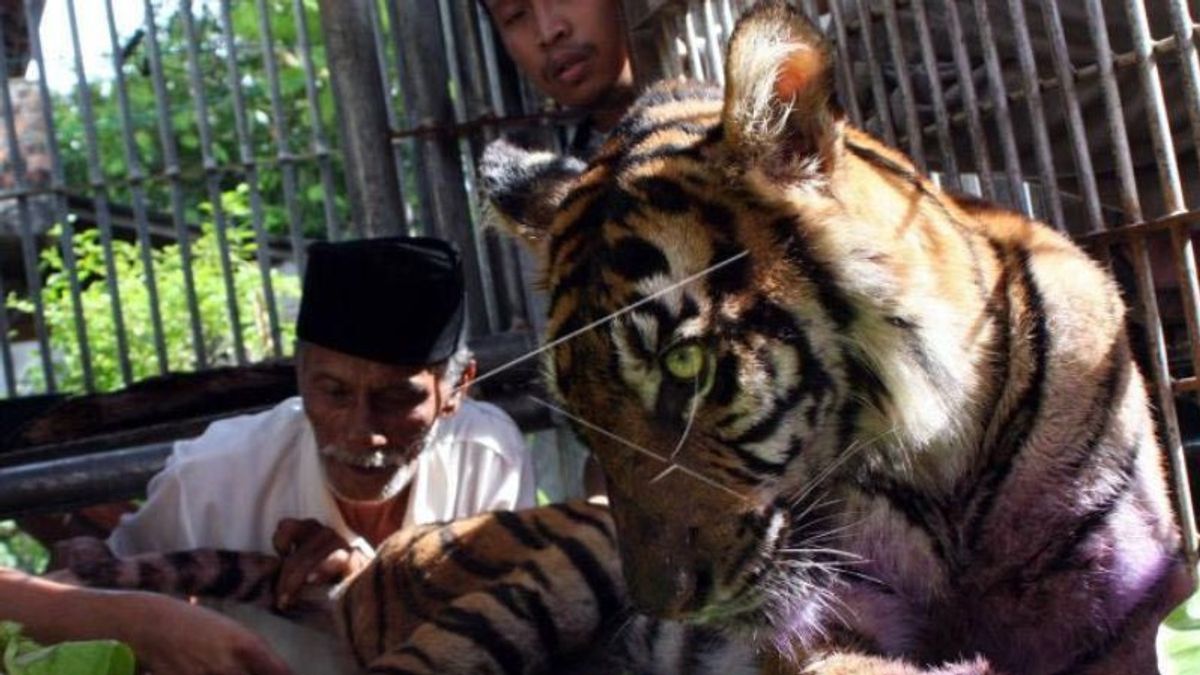BANDA ACEH - The Natural Resources Conservation Agency (BKSDA) stated that a Sumatran tiger (Panthera tigris sumatrae) was reported to have returned to a resident's plantation in the Bakongan Timur area, South Aceh Regency.
"A tiger was reported to have entered a resident's plantation in the East Bakongan sub-district, which is a few kilometers away from local residents' settlements," said Head of Section II Subulussalam BKSDA Aceh Hadi Sofyan in South Aceh, quoted by Antara, Thursday, October 21.
Hadi said that the community reported that the tiger entered the plantation on the evening of Wednesday, October 20. Based on the report, the BKSDA team went directly to the location.
"The BKSDA team together with the Gunung Leuser National Park or TNGL team and partners have gone to the location, installed cameras, and patrolled and chased tigers out of residents' plantations," said Hadi Sofyan.
Hadi reminded the public not to approach the plantation area where the tiger was reported. Because it is not known how the condition of the tiger.
"The Aceh BKSDA team is still at the location, trying to get the tigers back into the forest. Hopefully, the tigers will stay away from the plantations, so that residents can carry out activities as usual in their gardens," said Hadi Sofyan.
SEE ALSO:
Previously, a tiger also entered a resident's plantation in East Bakongan District, South Aceh Regency, Saturday, October 9. At that time, the BKSDA team expelled the protected animals using firecrackers and brought in a tiger handler.
The Sumatran tiger is a protected wild animal based on the Regulation of the Minister of Environment and Forestry.
Based on the list of animal rarities issued by the world conservation agency International Union for the Conservation of Nature and Natural Resources (IUCN), this animal which is only found on the island of Sumatra has the status of a critically endangered species, with a high risk of extinction in the wild.
The Aceh BKSDA appeals to the community to jointly maintain the preservation, especially the Sumatran tiger, by not destroying the forest which is the habitat of various types of animals.
And not to catch, injure, kill, store, possess, maintain, transport, and trade protected animals alive or dead.
Then, do not install snares, poisons, high voltage electric fences that can cause the death of protected wildlife. All illegal acts are subject to criminal sanctions in accordance with statutory regulations.
In addition, other illegal activities can also cause wildlife conflicts, especially the Sumatran tiger with humans. This conflict resulted in economic losses to casualties, both humans and the survival of the wildlife.
The English, Chinese, Japanese, Arabic, and French versions are automatically generated by the AI. So there may still be inaccuracies in translating, please always see Indonesian as our main language. (system supported by DigitalSiber.id)

















